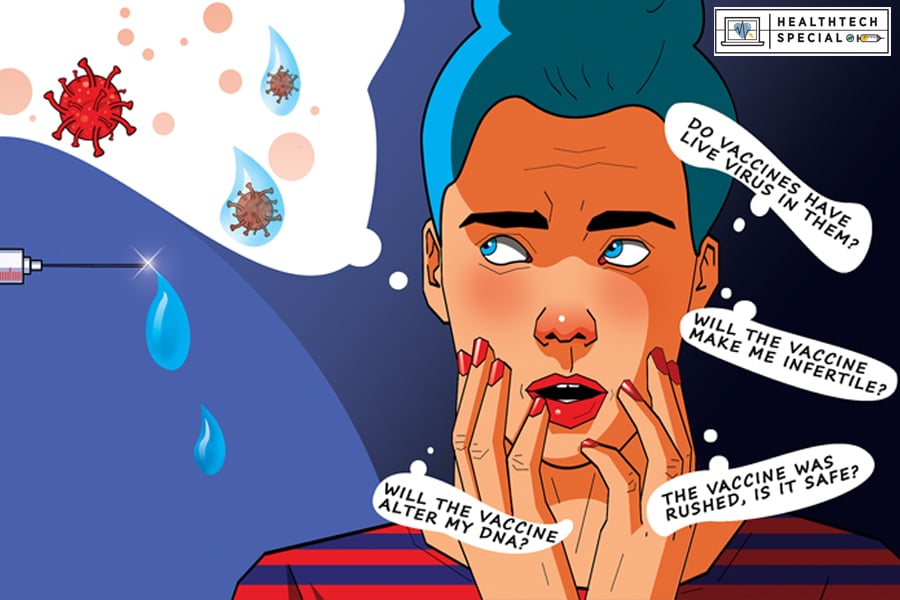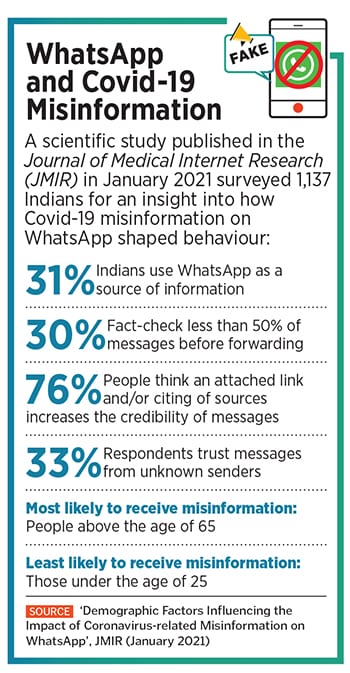
Why fear and fake news are slowing India's Covid-19 recovery
Misinformation and mistrust surrounding Covid-19 vaccines are slowing the pace of inoculation, and the problem might be more deep-rooted than we think
 Illustration: Chaitanya Surpur
Illustration: Chaitanya Surpur
On June 28, senior advocate Prashant Bhushan posted a series of tweets about how Covid-19 vaccines are unsafe. His comments were soon flagged as misleading by Twitter.
In response to the backlash, he put out a detailed clarification on Twitter titled ‘Why I Am Vaccine Skeptic’, where he claimed that while he is not anti-vaccine or anti-science, he is aware of scientific views on several subjects being driven by “political, commercial and media-vested interests”, and serious adverse effects of vaccines being underreported.
Experts and fact-checkers, however, even flagged as misleading some of the reports Bhushan, 64, cited to make his case. For instance, the advocate quoted a report that uses data from a June 18 technical briefing by Public Health England (PHE) to claim that those who have received a Covid-19 vaccine are six times more likely to die from being infected by coronavirus variants than those who have not taken the shots. The PHE data in the report, experts have pointed out, has been taken out of context, as it incorrectly gives the number of deaths among vaccinated and non-vaccinated people without taking into consideration other factors like age group, comorbidities etc.
“Why can’t those in the establishment take opposing views like mine?” Bhushan asks Forbes India. “There’s enough research to show that the disadvantages of taking the vaccine far outweigh the advantages,” he says, adding that he believes Indians have developed robust immunity against the coronavirus because “50 percent of the population has been infected by the virus”.
(This story appears in the 30 November, -0001 issue of Forbes India. To visit our Archives, click here.)
_20220316022208_102x77.jpg)




 “Infodemics and rumours create mistrust and undermine public health responses at the national and community levels by confusing people and nudging them to adopt risk-taking behaviours, such as refusing vaccination,” Dr Roderico H Ofrin, WHO representative to India, tells Forbes India. “Infodemics surge during health emergencies, when evidence-based information about a disease is still evolving, which leads to uncertainty that both confuses and scares people and prompts them to seek information from every possible source, some of which may be unreliable.”
“Infodemics and rumours create mistrust and undermine public health responses at the national and community levels by confusing people and nudging them to adopt risk-taking behaviours, such as refusing vaccination,” Dr Roderico H Ofrin, WHO representative to India, tells Forbes India. “Infodemics surge during health emergencies, when evidence-based information about a disease is still evolving, which leads to uncertainty that both confuses and scares people and prompts them to seek information from every possible source, some of which may be unreliable.” 



